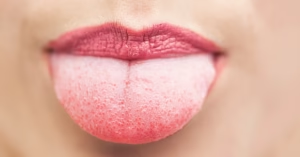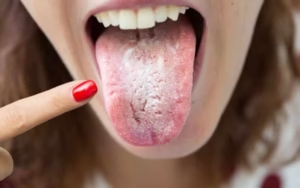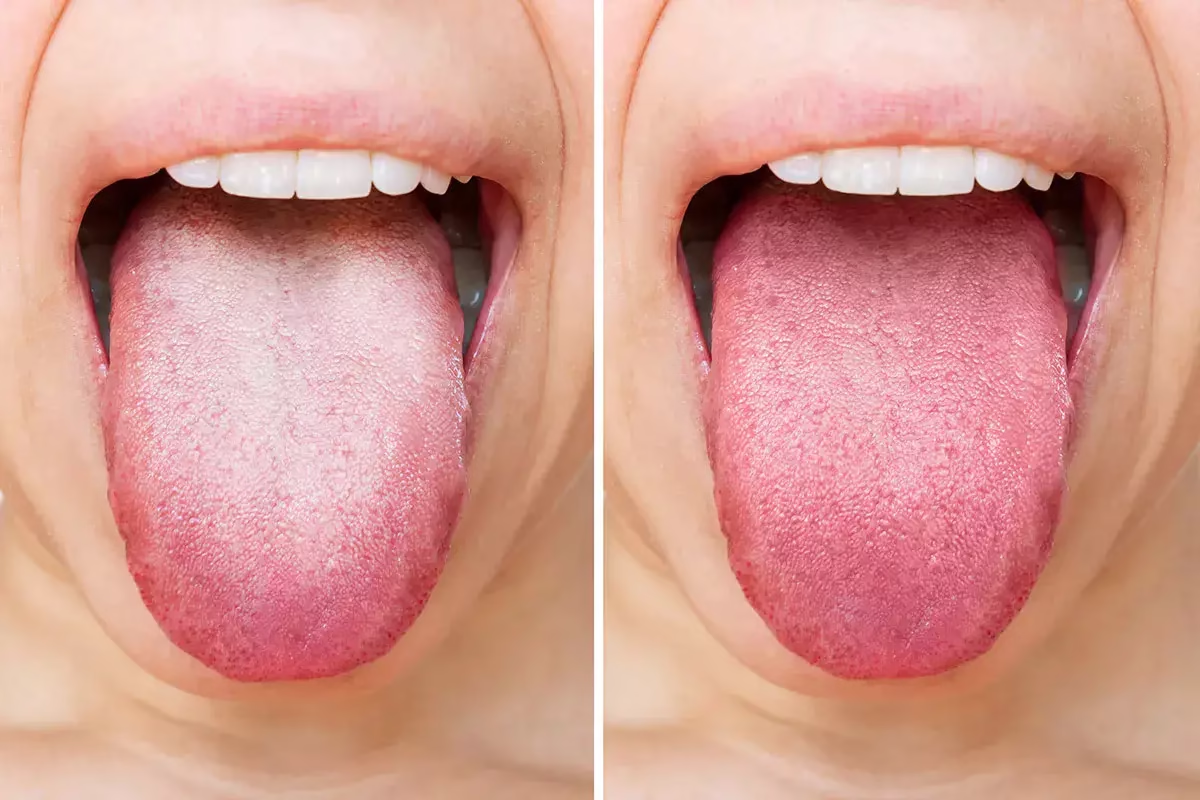Introduction
A healthy tongue usually appears pink and moist. However, sometimes you may notice a white coating or patchy discoloration. While a white tongue can be harmless in many cases, it may also signal an underlying oral or systemic health issue. Understanding the causes, home remedies, and warning signs can help you take timely action and maintain good oral health.
In this article, we’ll explore why your tongue turns white, effective remedies, and when you should consult a dentist or doctor.
What is a White Tongue?
A white tongue is a condition where the surface of the tongue appears coated with a whitish layer. This happens when debris, bacteria, and dead cells get trapped between enlarged papillae (tiny bumps) on the tongue.
Most cases are temporary and resolve with proper oral hygiene. However, persistent or painful white patches may indicate a more serious health condition.
Common Causes of White Tongue

1. Poor Oral Hygiene
Not brushing or cleaning the tongue properly allows bacteria and food particles to build up, leading to a whitish coating.
2. Dehydration and Dry Mouth
Low saliva production encourages bacterial growth, which contributes to white patches.
3. Smoking and Tobacco Use
Tobacco irritates the oral tissues, causing discoloration and buildup on the tongue.
4. Alcohol Consumption
Excessive alcohol intake can dehydrate the mouth and irritate the tongue lining, creating a whitish appearance.
5. Oral Thrush (Candidiasis)
A yeast infection caused by Candida albicans, oral thrush appears as creamy white patches on the tongue, often accompanied by soreness.
6. Leukoplakia
A condition where thick white patches develop inside the mouth and on the tongue, usually linked with smoking or alcohol. While not always cancerous, it can be precancerous and requires medical attention.
7. Lichen Planus
An inflammatory condition that produces white, lacy patches in the mouth. It may cause discomfort and requires monitoring.
8. Geographic Tongue
This harmless condition creates smooth, red patches with white borders that appear and disappear over time.
9. Medications
Certain antibiotics or drugs that alter mouth flora can contribute to a white tongue.
10. Systemic Health Conditions
- Diabetes
- Weak immune system
- Nutritional deficiencies (Vitamin B12, iron, folic acid)
When to Worry About White Tongue
While most cases are harmless, you should seek medical or dental advice if:
- White patches persist for more than 2 weeks
- Patches are hard, thick, or raised
- There is pain, burning, or difficulty swallowing
- You notice bleeding when scraping the tongue
- You have a history of tobacco or alcohol use
These may indicate conditions like oral cancer, leukoplakia, or serious infections.
Home Remedies and Self-Care

1. Maintain Good Oral Hygiene
- Brush twice daily
- Use a tongue scraper or soft brush to clean the tongue
- Floss regularly
2. Stay Hydrated
Drink enough water throughout the day to prevent dry mouth.
3. Salt Water Gargle
Salt water rinses help reduce bacteria and keep the tongue clean.
4. Baking Soda Rinse
A mild baking soda solution can restore pH balance and reduce white coating.
5. Yogurt and Probiotics
Eating plain yogurt and probiotic supplements may help balance oral bacteria.
6. Quit Smoking and Limit Alcohol
These habits worsen tongue discoloration and increase oral cancer risk.
7. Balanced Diet
Include fruits, vegetables, and vitamin-rich foods to strengthen immunity.
Medical Treatments for White Tongue
If self-care does not work, a dentist or doctor may suggest:
- Antifungal medications (for oral thrush)
- Antibiotics (for bacterial infections)
- Corticosteroids (for lichen planus)
- Biopsy or monitoring (for leukoplakia or suspicious patches)
Prevention Tips
- Brush your tongue daily
- Avoid excessive sugar and alcohol
- Stay hydrated
- Get regular dental check-ups
- Quit smoking
- Manage systemic conditions like diabetes
Key Takeaway
A white tongue is often harmless and related to poor oral hygiene, dehydration, or lifestyle factors. However, persistent, painful, or patchy white spots may indicate infections or precancerous conditions that need professional evaluation. Practicing good oral care, maintaining hydration, and seeking timely medical help can ensure a healthy tongue and overall oral health.
Internal Linking
External Linking
- Mayo Clinic – White Tongue
- American Dental Association
- White Tongue: Causes, Treatments & Prevention


[…] Read More: White Tongue: Causes, Home Remedies […]